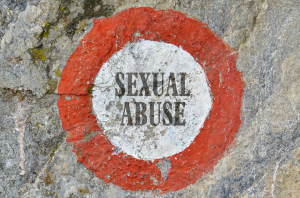Childhood Sexual Abuse Linked to Sexual Problems in Women

Women who have been sexually abused as children develop more sexual problems than their non-abused peers, according to a recent review of medical literature by American scientists.
In an effort to understand more about prevalence of sexual dysfunction in victims of childhood sexual abuse (CSA), the research team analyzed previous scientific reports on the topic. They published their findings in the journal Sexual Medicine Reviews in January.
They defined childhood sexual abuse (CSA) as “unwanted sexual contact between a child and an adult.” Such contact might involve vaginal or anal penetration, forced sexual touching, or oral sex. Contact doesn’t necessarily mean touch, however. Exposure to one’s genitals can be considered abuse, too.
Many women are victims of childhood sexual abuse, they added. In one study of women in 22 countries, 20% of the respondents had experienced it. Other studies of American women estimated that between 17% and 51% of women had CSA histories.
It’s difficult to know how many women with CSA histories have sexual problems. That’s because various studies used different definitions of both CSA and sexual dysfunction. They also involved different groups of women, such as women who were being treated for sexual problems or female college students. They estimated that in general, between 25% and 59% of women with CSA histories have some degree of sexual dysfunction.
The research team explained that issues with desire, arousal, orgasm, and pain are especially troublesome in women with childhood sexual abuse histories.
It’s not clear exactly why the problems occur, but the researchers suggested several pathways:
- Women who have been abused might process sexual stimuli differently.
- They might consider sex in a more negative light, feel more fear and anger during arousal, and feel negatively about their own sexuality.
- They might have poor body image and low body esteem.
- They might blame themselves for what happened or feel guilty about their experience.
- Their sympathetic nervous systems might behave differently, leading to arousal issues.
Women’s experiences with sex therapy might provide some keys to understanding sexual dysfunction in abused women. The reviewers noted that expressive writing during treatment could help women process their experiences, work through their feelings of anger or shame, and develop positive thoughts related to sex.
Mindfulness-based sex therapy, during which women learn to experience sex “in the moment” and focus their attention on intimacy, has also been effective for women with CSA histories, the researchers said.
Still, they added that more research is needed so that healthcare professionals can better understand the link between abuse and sexual dysfunction and tailor treatments for women who have been abused.
Resources
Sexual Medicine Reviews
Pulverman, Carey S., PhD, et al.
“The Impact of Childhood Sexual Abuse on Women's Sexual Health: A Comprehensive Review”
(Full-text. First published online: January 19, 2018)
http://www.smr.jsexmed.org/article/S2050-0521(17)30147-6/fulltext
You may also be interested in...
Other Popular Articles

What Is the Average Penis Size?
If you have ever wondered how your penis compares to others in terms of size, you are not alone. Many men are curious to know how their penises stack up compared to the average. Unfortunately, general curiosity can sometimes give way to full-on obsession and anxiety about penis size. This can be an unhealthy and often unnecessary fixation, especially because most men who think their penises are too small have perfectly normal-sized penises.

What Is Jelqing, and Does It Actually Work?
The term “jelqing” refers to a set of penis stretching exercises that some believe can make the penis bigger. Although the practice has gained attention and popularity in blogs and internet forums in recent years, there is no scientific evidence that it is an effective way to permanently increase the size of one’s penis. In fact, in some cases, jelqing may actually cause damage to the penis, so it is a good idea to get all the facts before setting off to try it.

What Is Sensate Focus and How Does It Work?
Sensate focus is a technique used to improve intimacy and communication between partners around sex, reduce sexual performance anxiety, and shift away from ingrained, goal-oriented sexual patterns that may not be serving a couple.

Can Sex Reduce Menstrual Cramps?
The SMSNA periodically receives and publishes ‘guest editorials.’ The current article was submitted by Mia Barnes, a freelance writer and researcher who specializes in women's health, wellness, and healthy living. She is the Founder and Editor-in-Chief of Body+Mind Magazine.
Having sex while you experience menstrual cramps is healthy and can provide significant benefits. While it might not be the first activity that comes to mind when your PMS or period cramping begins, many people enjoy sex to reduce menstrual cramps, experience increased pleasure and benefit from other advantages. Learn more about having sex while menstrual cramps are happening and how it can help your body.

How Long Does It Take the Average Man to Ejaculate?
On average, it takes a man between 5 to 7 minutes to orgasm and ejaculate during sexual intercourse.

Can Sex Throw off Your Vaginal pH Balance?
The SMSNA periodically receives and publishes ‘guest editorials.’ The current article was submitted by Mia Barnes, a freelance writer and researcher who specializes in women's health, wellness, and healthy living. She is the Founder and Editor-in-Chief of Body+Mind Magazine.
Your vagina is a pretty powerful organ. It is a pathway for menstrual blood and babies. It also is a main player in sexual intercourse. You might hear about your vagina’s pH and worry that yours is at risk. Here’s what to know about vaginal pH, including the impacts sex could have.
You are prohibited from using or uploading content you accessed through this website into external applications, bots, software, or websites, including those using artificial intelligence technologies and infrastructure, including deep learning, machine learning and large language models and generative AI.

